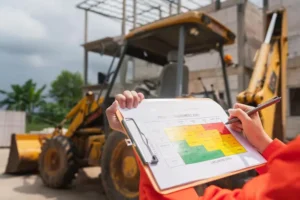If you’re in construction or demolition in Italy, there’s one term you must understand: SOA OS23. This certification is becoming essential for companies that want to participate in public tenders, especially in the field of demolition.
In this guide, we’ll break down exactly what SOA OS23 is, why it matters, who needs it, and how to get certified. We’ll also explore digital transformation, legal obligations, trends, and real-world examples to help you stay compliant and competitive.
What Does “SOA OS23” Stand For?
SOA OS23 refers to a certification category in Italy that covers demolition of works (in Italian: demolizione di opere). It’s governed by Annex A of the Presidential Decree 207/2010.
SOA stands for Società Organismo di Attestazione — the authorized bodies that issue this qualification. OS23 is just one category among many, each representing different types of construction and engineering work.
Is SOA OS23 Mandatory or Optional?
While SOA OS23 is not always legally mandatory, it’s becoming increasingly necessary. Public institutions often require this certification when dealing with high-risk or technically complex demolitions. Even when not required, having it shows:
-
Proven technical ability
-
Legal compliance
-
Commitment to safety and sustainability
In simple terms: no SOA OS23, no serious public contracts.
Why SOA OS23 Matters in Public Tenders
Italian public procurement law demands strict standards. To bid on public works exceeding €150,000, you need SOA certification. OS23, although optional, gives your business an edge when applying for:
-
Controlled demolition projects
-
Industrial dismantling
-
Demolitions involving environmental risks
It tells contracting authorities you’re qualified, safe, and reliable.
Who Needs SOA OS23 Certification?
If your company does any of the following, you need to consider SOA OS23:
-
Demolition of buildings or plants
-
Use of explosives or hydraulic tools
-
Reinforced concrete removal
-
Separation of demolition waste
-
Sustainable demolition processes
Whether you’re a local demolition firm or a large contractor, having this certificate will put you ahead of the competition.
Differences Between OS23 and Other SOA Categories
Italy’s SOA system includes over 50 categories. Here are a few compared with OS23:
| Category | Description | Mandatory? |
|---|---|---|
| OG1 | Civil and Industrial Construction | Yes |
| OG3 | Road and Highway Works | Yes |
| OS23 | Demolition of Works | Optional (but often required) |
| OS21 | Special Structural Work | Yes |
While some categories are strictly mandatory, OS23 often becomes a de facto requirement due to project complexity.
Legal Risks of Not Having SOA OS23
Operating without SOA OS23 can lead to:
-
Disqualification from tenders
-
Legal disputes over non-compliance
-
Fines or blacklisting
-
Reputational damage
Public authorities want assurance. If you can’t prove certification, your bid won’t be considered — even if you have the technical ability.
How to Get SOA OS23 Certified: Step-by-Step
Here’s a straightforward process to follow:
-
Contact an authorized SOA body
-
Only accredited organizations can issue the certification.
-
-
Prepare your documents
-
Proof of past projects
-
Financial statements
-
Staff qualifications
-
Equipment inventory
-
-
Undergo audits and evaluation
-
Technical capabilities
-
Safety standards
-
Regulatory compliance
-
-
Receive certification
-
Valid for 5 years, with a mandatory mid-term check after 3 years.
-
SOA OS23 Costs and Timeframes
While costs vary depending on company size and documentation needs, here’s an estimate:
-
Initial assessment: €4,000 – €10,000+
-
Mid-term review: 50% of initial fee
-
Renewal every 5 years
The full process can take 30 to 90 days, depending on how ready your documents are.
Top Mistakes to Avoid in SOA OS23 Certification
Avoid these common pitfalls:
-
Incomplete documentation
-
Outdated financials
-
Insufficient proof of work
-
Unqualified staff
-
Missing insurance or compliance records
Working with a consultant or legal advisor can help streamline the process.
How SOA OS23 Aligns With Sustainability and Innovation
Today’s demolition is not just about tearing things down. It’s about building smart, sustainable futures. SOA OS23 now increasingly includes:
-
Eco-friendly demolition standards
-
Waste material separation
-
Low-emission machinery
-
Recycling targets
Being certified means you’re ready for the green shift in construction.
Latest Updates to SOA OS23 (2024–2025)
Several changes are shaping SOA OS23 in recent years:
-
Digital portals for certification submission
-
Mandatory waste recycling documentation
-
Real-time safety monitoring tools
-
Digital signatures for audit trails
Keeping up with these changes isn’t optional anymore — it’s required to stay competitive.
Digital Tools Revolutionizing SOA OS23
Demolition workflows are evolving thanks to:
1. BIM (Building Information Modelling)
-
Enables simulated demolition plans
-
Improves regulatory approvals
2. GIS (Geographic Information Systems)
-
Maps risk zones in real-time
-
Tracks structural weaknesses
3. AI and Predictive Maintenance
-
Anticipates equipment failure
-
Reduces accident risk
4. Digital Credentialing
-
Automates certification status
-
Updates you on law changes
Digital adoption reduces human error and speeds up compliance.
Real-World Success Stories Using SOA OS23
-
UrbanWorks Group: Used GIS + SOA OS23 to win €3M demolition contract in Milan.
-
EcoBuild Ltd: Leveraged BIM for a hospital demolition, saving 17% on costs.
-
GreenDemolish Srl: Achieved zero-waste demolition using OS23 recycling benchmarks.
These cases prove how SOA OS23 isn’t just a legal box-tick — it’s a business advantage.
Tips for Maintaining SOA OS23 Long-Term
-
Renew your certification early (don’t wait till the deadline).
-
Track compliance in real-time with digital tools.
-
Train your staff on updated safety and legal norms.
-
Subscribe to legal bulletins to stay ahead of regulation changes.
SOA OS23 is not a one-time effort — it’s a continuous process.
Downloadable Checklist: Are You Ready for SOA OS23?
✅ Basic requirements:
-
Company is legally registered in Italy
-
Has prior demolition project experience
-
Has qualified technical staff
-
Equipment complies with EU safety standards
-
Financial records for the last 3 years
-
Environmental policies in place
Advanced requirements:
-
Digital project tracking systems
-
Sustainability goals and waste management
-
Ongoing staff training program
Frequently Asked Questions (FAQs)
What is SOA OS23?
It’s a public works certification in Italy that qualifies companies for demolition projects in government tenders.
Is SOA OS23 mandatory?
Not always, but it’s frequently required for competitive bids in public demolition works.
How long does SOA OS23 last?
It’s valid for 5 years, with a review at the 3-year mark.
What happens if I don’t have SOA OS23?
You may be disqualified from bidding or even penalized for non-compliance.
Can international firms get SOA OS23?
Yes, but they must establish an Italian entity or partnership to qualify.
Conclusion: Why SOA OS23 Is More Important Than Ever
SOA OS23 isn’t just a certification it’s a signal. It tells clients and regulators that your company is serious, compliant, and ready for future demands. From sustainable practices to digital transformation, this certificate helps you stand out in a crowded market.
Investing in SOA OS23 now will future-proof your business, open up lucrative public contracts, and help you become a leader in responsible demolition.


